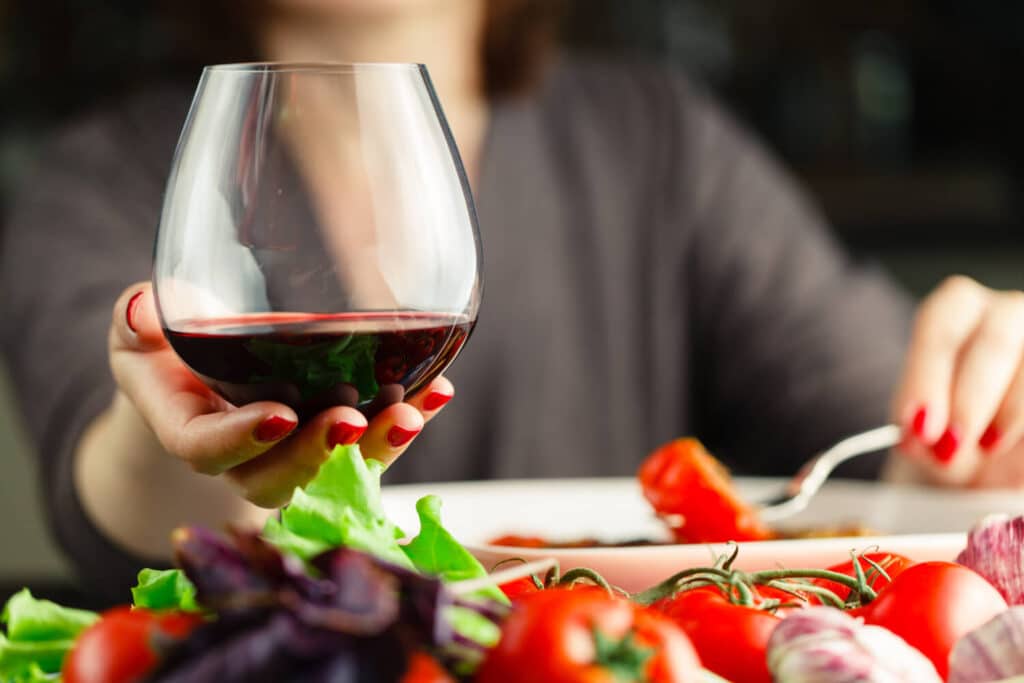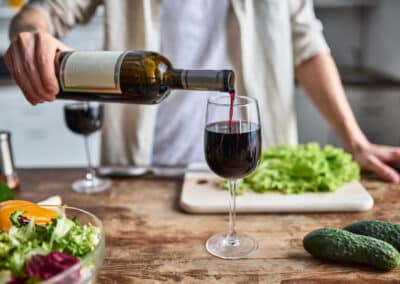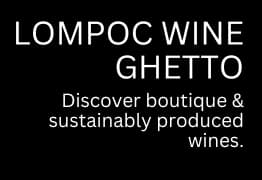As natural wine becomes more prevalent in the US, there’s several terms that have been new to our ears. Here’s some that have caught our fancy and we feel may catch yours too.
- Natural Wine: Wine produced with minimal intervention, typically made from organic or biodynamically grown grapes, and often bottled with little to no additives. The goal is to express the purest form of the grape and the terroir.
- Zero/Zero (0/0): A term used to describe natural wines where no additional substances or processes have been used. This means no additives or removals in the cellar, indicating a minimal intervention approach.
- Native Yeasts: Also known as wild, Sauvage, or natural yeasts. These yeasts occur naturally on the grapes and in the environment and are used for spontaneous fermentation, giving a truer expression of the vineyard.
- Volatile Acidity (VA): A fault in wine characterized by the presence of acetic acid, resulting in aromas of vinegar or nail polish remover. In small amounts, it can sometimes contribute to a wine’s complexity.
- Spontaneous Fermentation: The process where fermentation occurs naturally, initiated by the wild yeasts present on the grapes and in the winery environment, without the addition of commercial yeasts.
- Organic Farming: A farming method that avoids the use of synthetic chemicals like pesticides or herbicides. Instead, it relies on natural and organic inputs to cultivate grapes.
- Biodynamic Farming: An ecological and holistic approach to farming that aims to balance the entire vineyard with nature and lunar cycles. It goes beyond organic farming and focuses on the vineyard as an interconnected ecosystem.
- Dry Farming: A method where grapevines rely solely on rainwater and natural moisture from the soil, without artificial irrigation. This promotes stronger vines and more concentrated grape flavors.
- Mousey: A wine fault characterized by a musty, stale aroma and flavor, often resembling a hamster cage. It can be caused by specific strains of yeast and bacteria.
- Unfiltered Wine: Wine that hasn’t undergone filtration to remove sediments, giving it a potentially cloudy appearance. This can contribute to a more expressive and textured wine.
- Unfined Wine: Wine that hasn’t been clarified using fining agents. This means it hasn’t been treated with substances like egg whites, gelatin, or fish bladder to remove unwanted particles.

- Vegan Wine: Wine produced without the use of animal-derived fining agents. This ensures that no animal products are used in the winemaking process.
- Glou-Glou/Vin de Soif: French terms referring to wines that are easy-drinking and quenching, often described as “glug-glug” wines.
- Pét-Nat/Pétillant Naturel/Méthode Ancestral: A method of producing naturally sparkling wines by bottling before the first fermentation is complete, allowing carbonation to occur naturally.
- Col Fondo: An Italian term for naturally cloudy sparkling wines, often referring to Prosecco that hasn’t undergone disgorgement.
- Orange/Amber Wine: Wine made from white grapes with extended skin contact, resulting in an orange color and potentially more complex flavor profile.
- Skin Contact: The process of allowing grape juice to ferment with extended contact with the grape skins, which can impart color, flavor, and tannins to the wine.
- Qvervi/Amphora: Clay vessels used in the winemaking process, particularly in ancient winemaking methods. The wine is fermented or aged in these vessels, imparting unique characteristics.
- Carbonic Maceration: A winemaking technique where whole grape clusters are sealed in a container and fermented from the inside out, often used in producing light and fruity red wines.
- Sulfur/Sulfites: Compounds used in winemaking as a preservative to prevent oxidation and maintain freshness. Natural winemakers aim to use minimal or no added sulfites.





